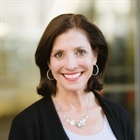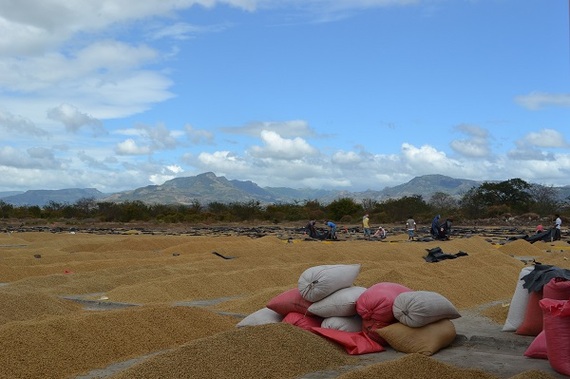By Elizabeth Boggs Davidsen and Alejandro Escobar

Elizabeth Boggs Davidsen is acting chief of the Multilateral Investment Fund's Access to Markets and Skills Unit, with expertise in corporate engagement, local development, social innovation, and youth employment. She also advises on partnerships for the Fund's grant and investment activities.
It used to be that coffee and bananas were among the few products that carried a fair trade label, and made people feel good about their purchases during trips to the local supermarket. Nowadays, there are a vast number of products with some kind of standard or certification that guarantees a fair price, ensures that organic standards were met during production, or at least, says where it was grown. You can look for these labels now on just about every product you buy: fish, strawberries, quinoa, and even milk.
Early certification efforts
Various organizations have played a role in transforming standards and certifications from an exotic concept, to something more banal. Some of these players, working behind the scenes, have funded early efforts to promote the concept of standards and certifications--both at the demand level with consumers, and also at the supply level with producers. For instance, Switzerland's State Secretariat for Economic Affairs (SECO) and the U.S. Agency for International Development (USAID) both supported the initial efforts of certifying organizations UTZ Certified, Rainforest Alliance, and Fairtrade International. This required an enormous amount of resources to launch, promote, and implement, until standards and certifications were more widely accepted by farmers and consumers.
The Inter-American Development Bank (IDB) also has had an impact, through dozens of projects to benefit small farmers in Latin America and the Caribbean. One example is work by the IDB's Multilateral Investment Fund (MIF) with coffee bean farmers in Central America since 2008. These projects have provided credit to small producers' cooperatives, strengthened the cooperatives through technical assistance and training, and helped the farmers obtain certifications that allowed them to pursue higher-value markets for their beans.
While some may argue--with a degree of truth--that the world is saturated with standards and certifications, these labels have helped the world food industry in two important ways. They have made us consumers more conscious about what we eat, so we can choose healthier foods, or foods that are sold under improved terms of trade, yielding more money for the producers. Standards and certifications also have increased the pressure on food companies to disclose their ingredients, specify where those products come from, and ensure that they have a positive impact on the lives of their producers and their environment.
The phrase "sustainably grown" has increasingly become associated not only with the agricultural techniques that farmers use. The concept of sustainability is now also linked with food companies' business practices, with financing for long-term investments in farming--such as planting new cocoa varieties that are more disease resistant--and with the governance throughout the food supply chains in which farmers participate.
Sustainable Agriculture, Food, and the Environment initiative
A new partnership between some global food companies and various donors and non-governmental organizations will aim to coordinate the work of these various players in sustainability efforts in Latin America and the Caribbean. The SAFE (Sustainable Agriculture, Food, and the Environment) platform, established in August 2015, was born out of observations by the MIF that many different players were working to improve the livelihoods of small farmers and their natural environment, but were not communicating, sharing good practices, or even exchanging experiences in a systematic manner.
The new alliance was initiated by the MIF and will be managed and supervised by the Humanist Institute for Cooperation (Hivos), a Netherlands-based international organization. The partnership will initially work in the coffee and cocoa industries, where much has been done in terms of good practice in sustainability standards, and will later expand to include other crops. The founding members of SAFE--including Starbucks, Keurig Green Mountain, Catholic Relief Services, and the Grameen Foundation--have committed to a goal of reaching 150,000 small farmers of various crops with financing and services that will allow them to expand their production and to strengthen their linkages with higher-value markets.
There is a special commitment to measuring the impact of each of the SAFE interventions. So, as projects are decided on and then rolled out, from the very beginning, state-of-the-art monitoring and evaluations systems will be incorporated. These systems will allow for the establishment of a common set of indicators that will give all the members and other similar organizations a more comprehensive understanding of the interventions' impact and what has been accomplished.
Keurig Green Mountain and Starbucks projects
SAFE started with two projects with Keurig Green Mountain and Starbucks, both major players in the coffee sector that are seeking the long-term sustainability of their supply chains, and therefore have both a commercial interest in and a commitment to boosting the livelihoods of their coffee bean producers. Another 3 projects will follow in 2016, and it is expected that a total of 7 projects will be financed in the first 5 years of the initiative.
Alejandro Escobar
Alejandro Escobar has worked 20 years in agricultural development. At the Multilateral Investment Fund, he is responsible for projects in sustainable agriculture, financing of farmer cooperatives, and development of investment vehicles for agricultural finance and of value chains of small farmers.
From the Multilateral Investment Fund Trends blog
